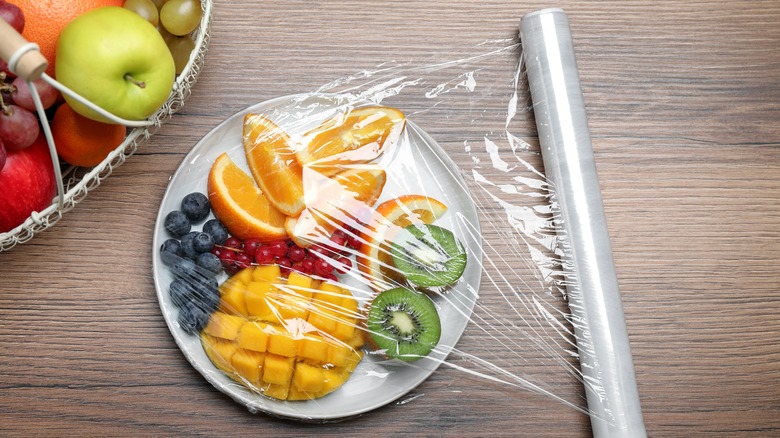Could Chemicals Found In Everyday Products Lead To Preterm Delivery In Expecting Mothers?
When you're pregnant, you know to avoid raw sushi, soft cheeses, and alcoholic beverages. But now there might be evidence that chemicals within everyday items may be a factor in preterm deliveries. A recent study published on July 11, 2022 in JAMA Pediatrics has found that women with higher concentrations of phthalates, chemicals often found in plastics, are more likely to deliver early. Preterm deliveries are considered to be births that occur three or more weeks before a woman's due date (per U.S. News & World Report). Over 6,000 women were studied to determine how phthalate exposure affects birth outcomes, and women with more phthalates in their urine were determined to be at 14-16% higher risk of delivering preterm.
According to the Centers for Disease Control and Prevention (CDC), phthalates are chemicals utilized to increase the durability of plastic items. Phthalates are sometimes referred to as plasticizers, and they're used in numerous products from plastic packaging to toiletries like shampoo, hair spray, and soap. Exposure to phthalates generally occurs when someone touches an item containing phthalates, or by consuming food that has had contact with phthalates. It's also possible to breathe in phthalate particles from the air. Once in the body, most phthalates are rapidly broken down into metabolites and passed through urine. However, the recent study on phthalate exposure and preterm delivery has raised questions about how to reduce phthalate exposure.
Reducing exposure to phthalates
The CDC reports that women are more likely to have higher phthalate exposure than men given the increased number of beauty and personal care products women tend to use. Children are also at higher risk of phthalate exposure due to the plastic used in toys and how frequently children touch items and then place their hands near or in their mouths. Widespread phthalate exposure has been determined across the United States, and while phthalates have been found to lead to decreased reproductive health in animals, there is still limited research on how phthalates affect humans.
Insider suggests ways to avoid phthalate exposure, including avoiding prepackaged food when possible, avoiding plastic food packaging, and instead utilizing stainless steel or glass containers for food storage. When it comes to personal care products, always review the list of ingredients and avoid products containing phthalates, and opt for products labeled 'phthalate-free.' In general, try to swap out as many of your plastic items for products made from wood, glass, and stainless steel to lower your exposure to phthalates, especially if you're expecting.


